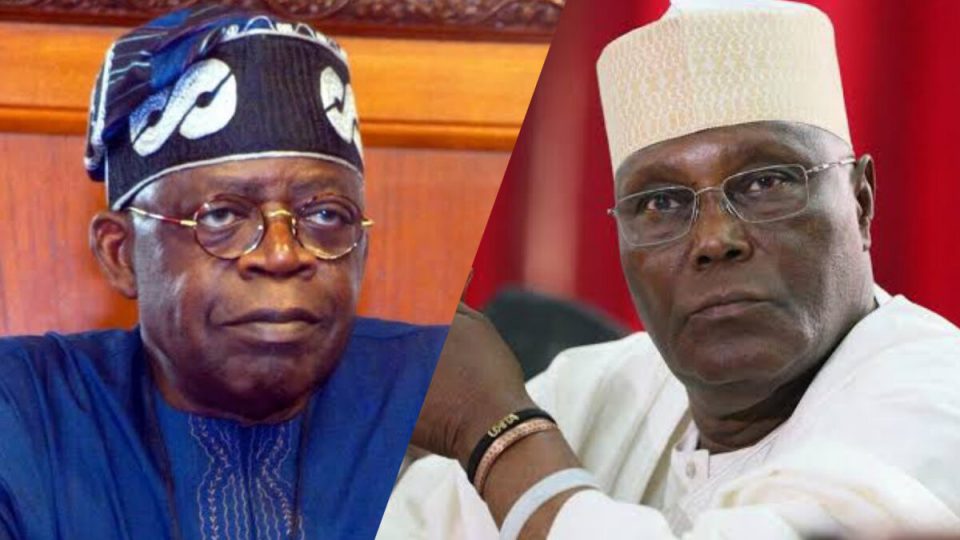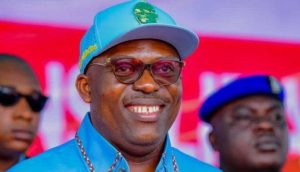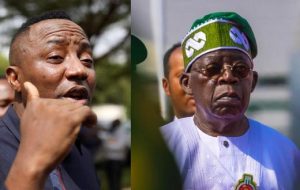
In a striking political development this week, a significant wave of defections from key opposition parties to the ruling party has reshaped the political landscape in Nigeria. As political figures and party leaders jump ship in droves, the implications of this shift are not only profound in terms of electoral mathematics but also in the potential recalibration of power dynamics within Nigeria’s political system.
The defection trend, especially in the wake of President Bola Tinubu’s administration, signals a deepening consolidation of power by the ruling party, the All Progressives Congress (APC). This shift comes at a time when political maneuvering is in full swing, with Nigeria gearing up for future elections and facing critical decisions on governance and national development. However, this move, while it may seem like a boon for the APC, is fraught with underlying challenges, particularly from figures like Governor Nasir El-Rufai and the influential Northern Nigerian political establishment.
President Bola Tinubu’s tenure has been characterized by a mix of political shrewdness, a strategic realignment of key power brokers, and an ability to navigate the complexities of Nigeria’s multi-faceted political environment. His administration’s ability to foster defections is a testament to the strength of its political machinery and the allure of power. These defections, particularly from states where the opposition once held sway, have effectively solidified the APC’s dominance in many parts of the country.
This political doggedness can be attributed to Tinubu’s well-known acumen as a strategist. Over the years, he has built alliances, fostered loyalty, and created a network of power brokers, not just within the southwestern region of Nigeria, where his influence is most pronounced, but also across other regions. His calculated moves to ensure that key figures from the opposition feel the need to join the ruling party reflect his deftness in keeping the APC at the forefront of Nigerian politics.
However, this consolidation of power has not come without its own set of challenges, particularly as figures like Nasir El-Rufai emerge as strong and vocal voices against the centralization of power under the current administration.
One of the most formidable figures within the APC, Governor Nasir El-Rufai of Kaduna State, has long been a polarizing figure in Nigerian politics. His political style is unapologetically bold, and his influence in the northern region of the country cannot be overstated. As a political strategist, El-Rufai has mastered the art of balancing regional interests with national ambition. His stance has, at times, put him at odds with the central leadership of the party, including President Tinubu.
El-Rufai’s voice carries significant weight, especially in the North, where traditional power structures remain strong. The northern region, with its complex interplay of religious, ethnic, and political dynamics, is a critical battleground for Nigeria’s future political direction. While El-Rufai’s alignment with the APC has been strategic, his future role in Nigerian politics could present challenges to Tinubu’s administration, particularly if he perceives his influence as being undermined.
In the northern region, the APC faces potential friction between traditional power brokers and new faces in leadership. The North, as the largest voting bloc, is a region where defections could stir unrest. Many northerners remain skeptical of any perceived centralization of power in the hands of southern leaders, which could stoke resentment and lead to disillusionment among key political players.
The defections to the ruling party are not confined to the southern or southwestern parts of the country. Northern Nigeria, traditionally a stronghold for the opposition, has witnessed notable political shifts as well. While this may signal a strengthening of the APC’s reach, the political fabric of the North is intricate and requires careful navigation.
Northern Nigeria has long been a region where power is a delicate dance, and the defection of key figures could have unintended consequences. The region’s diverse political identities—spanning from the conservative establishment to more progressive elements—require the ruling party to tread cautiously. Any missteps in balancing the interests of these groups could lead to alienation and a resurgence of opposition.
Furthermore, the challenge for the APC will be how to maintain the loyalty of the Northern elite while not alienating grassroots supporters who may feel their interests are being overshadowed by the party’s top brass. The defections are not just about switching allegiances but also about the reorganization of power within the region. The APC must ensure that these new members are integrated in a way that does not upset the existing power balance, particularly in states like Kano, Kaduna, and Sokoto, where political dynamics are volatile.
While the defection of political figures to the ruling party may give the APC an edge in the short term, it raises questions about the future of Nigeria’s democratic process. Defections, while common in many political systems, often reflect the fragility of party loyalty and a lack of ideological consistency. In a democracy, the ability of opposition parties to function as effective checks on government power is crucial for holding the ruling party accountable. If defections continue at this pace, it could erode the political pluralism that is essential for healthy democratic governance.
Moreover, the constant shifting of allegiances raises concerns about the transparency of political processes and the influence of money and power in shaping electoral outcomes. As more figures defect for personal or strategic gains, the electorate may become increasingly disillusioned with the political class, leading to voter apathy and a decline in civic engagement.
The defections to the ruling party this week represent a significant moment in Nigeria’s political history, showcasing the doggedness of President Bola Tinubu’s administration and the political maneuvering at play. However, this consolidation of power may also lead to new tensions, especially within the northern political establishment, as figures like Nasir El-Rufai represent a critical counterforce.
In the end, while the defections may bolster the APC’s position, they also highlight the deep-seated challenges the ruling party faces in navigating Nigeria’s complex political terrain. The coming months will reveal whether the APC can maintain its unity and if the defections will ultimately enhance or hinder the stability of Nigerian democracy. The road ahead is fraught with potential conflicts, but the outcome will shape the future of Nigerian politics for years to come.






